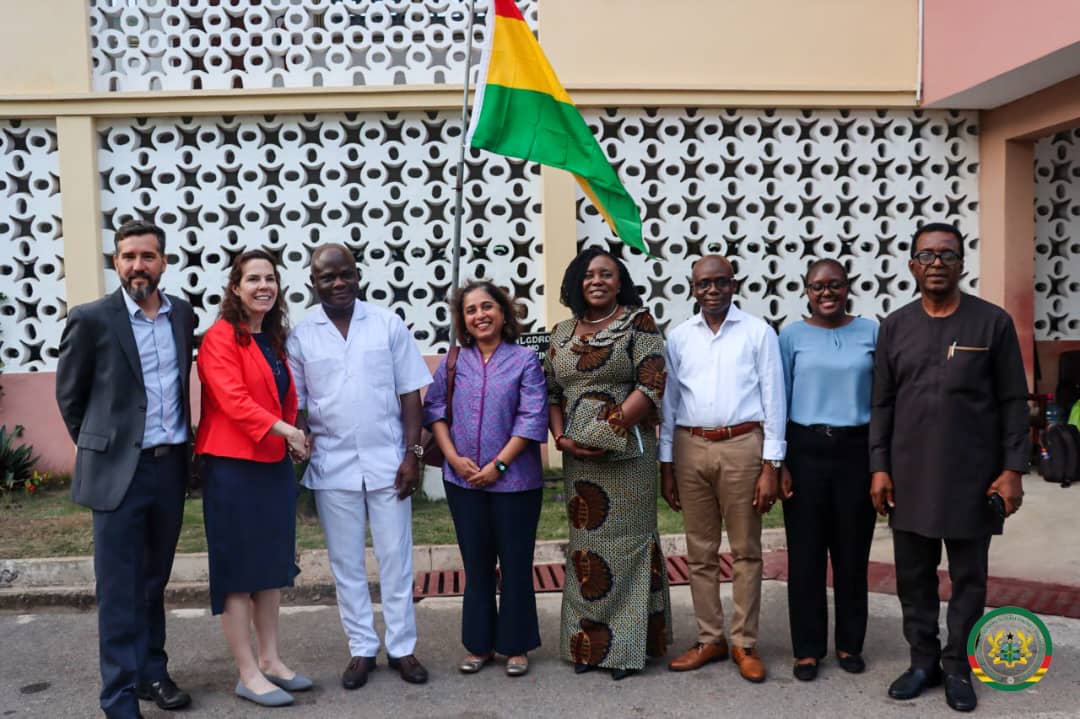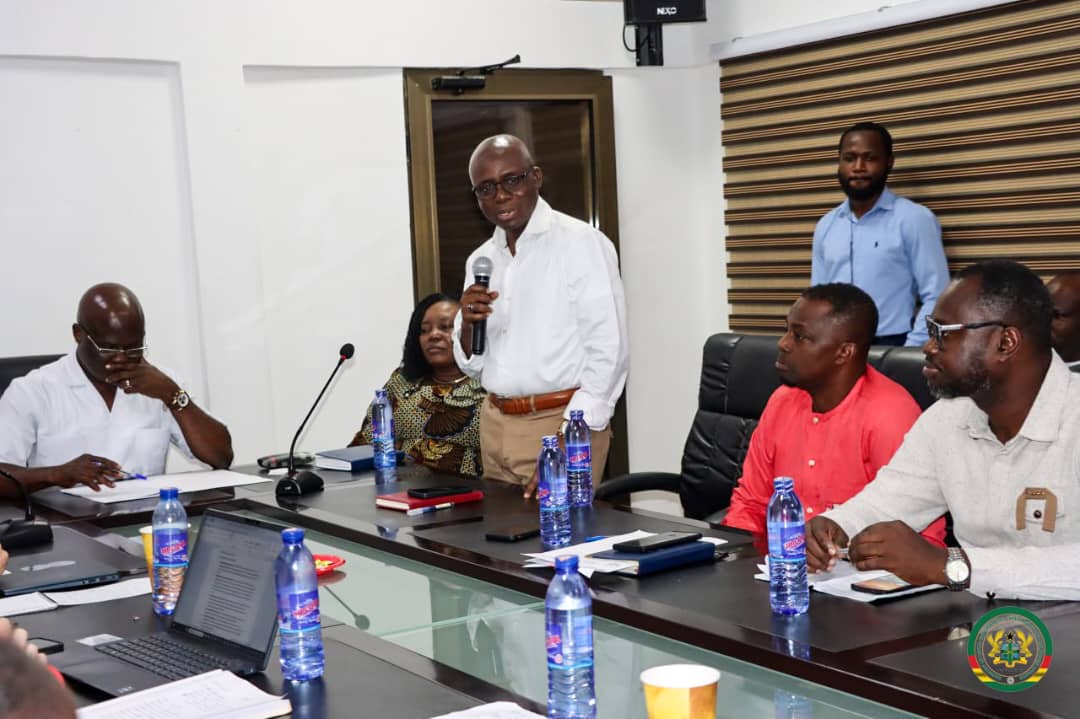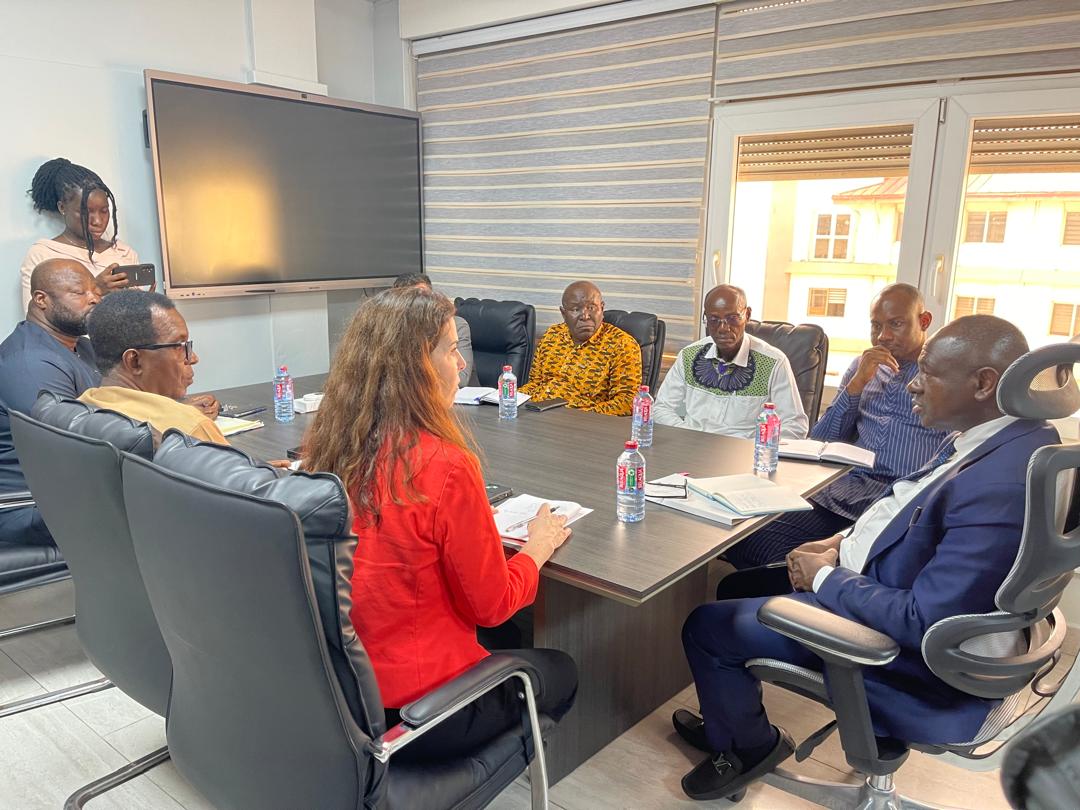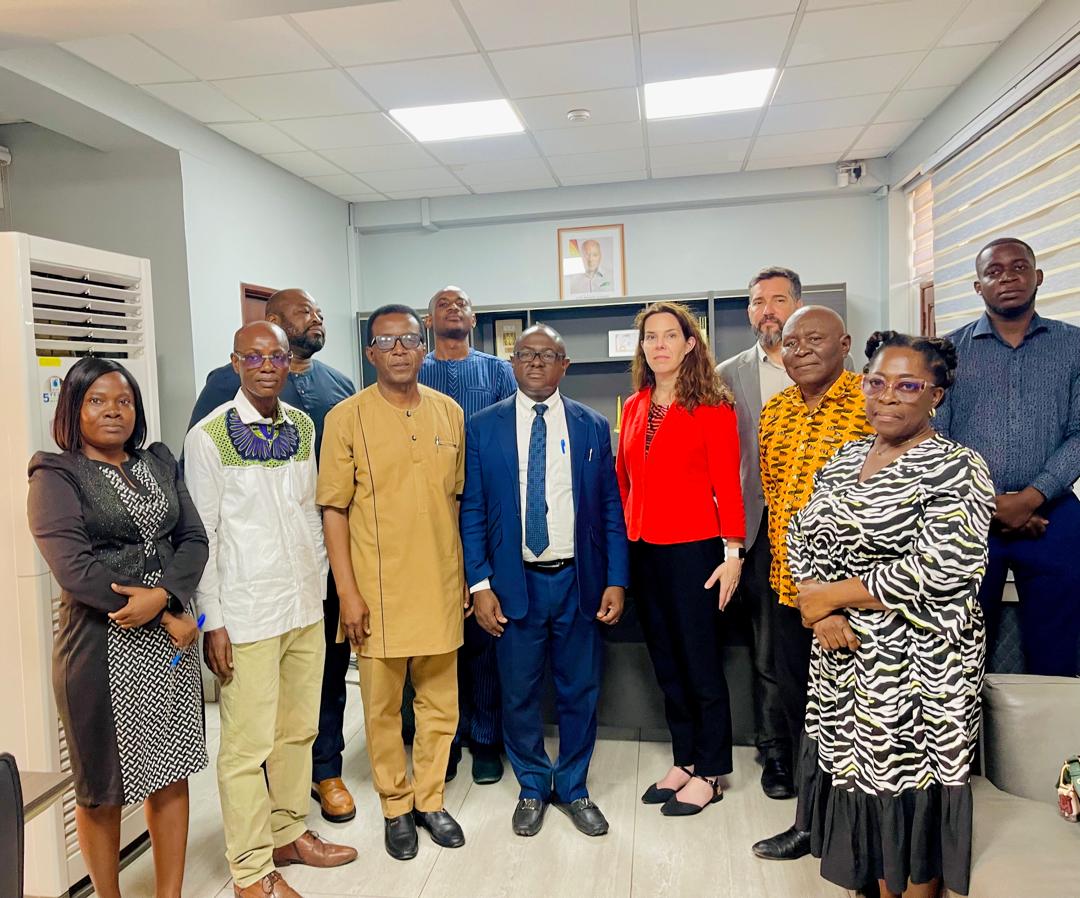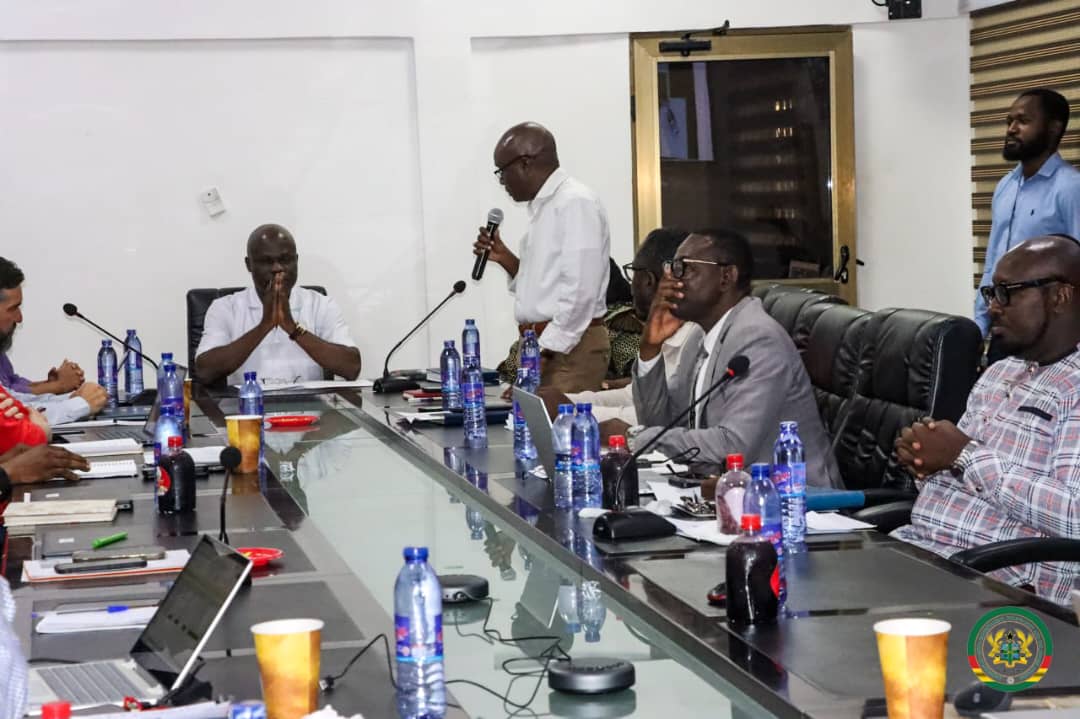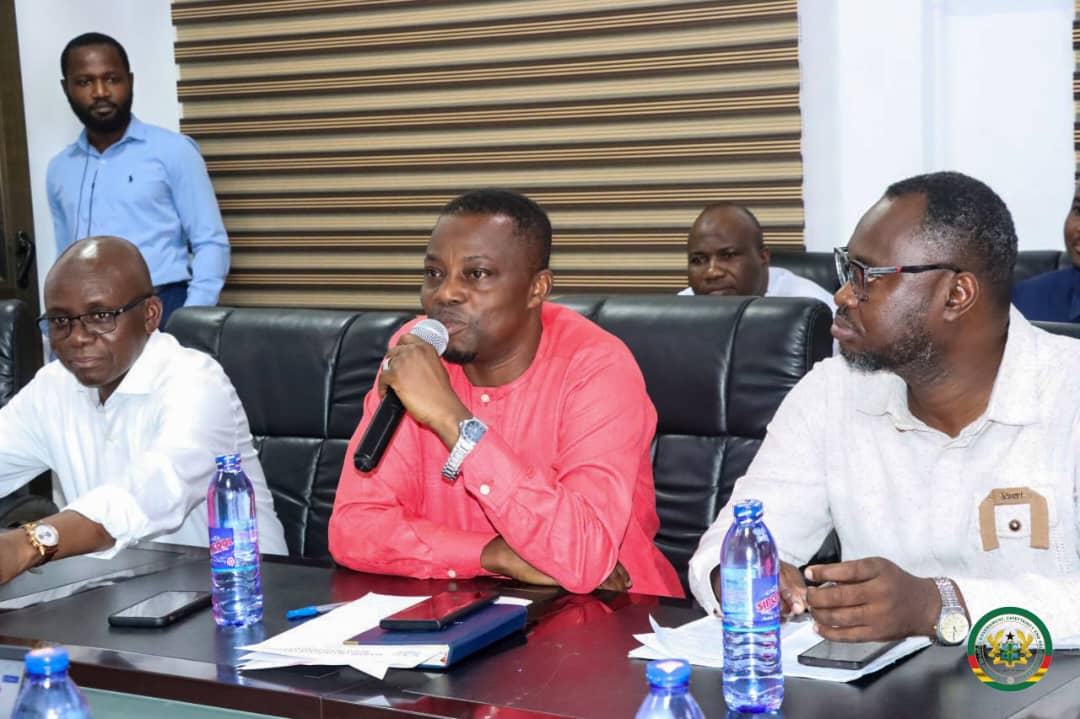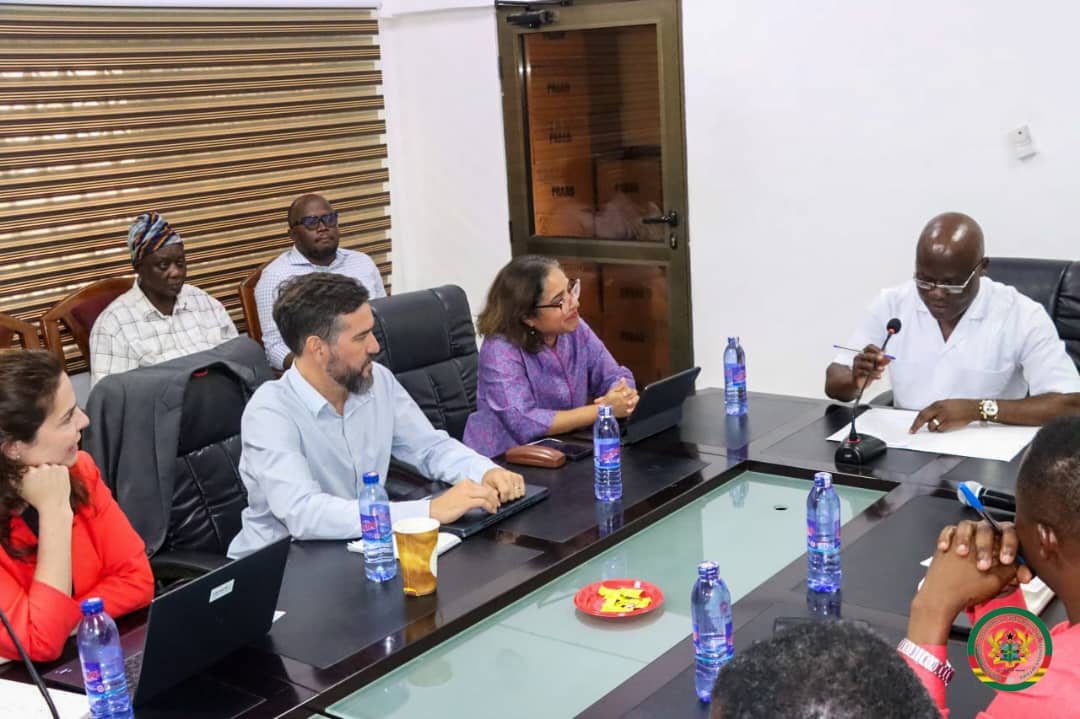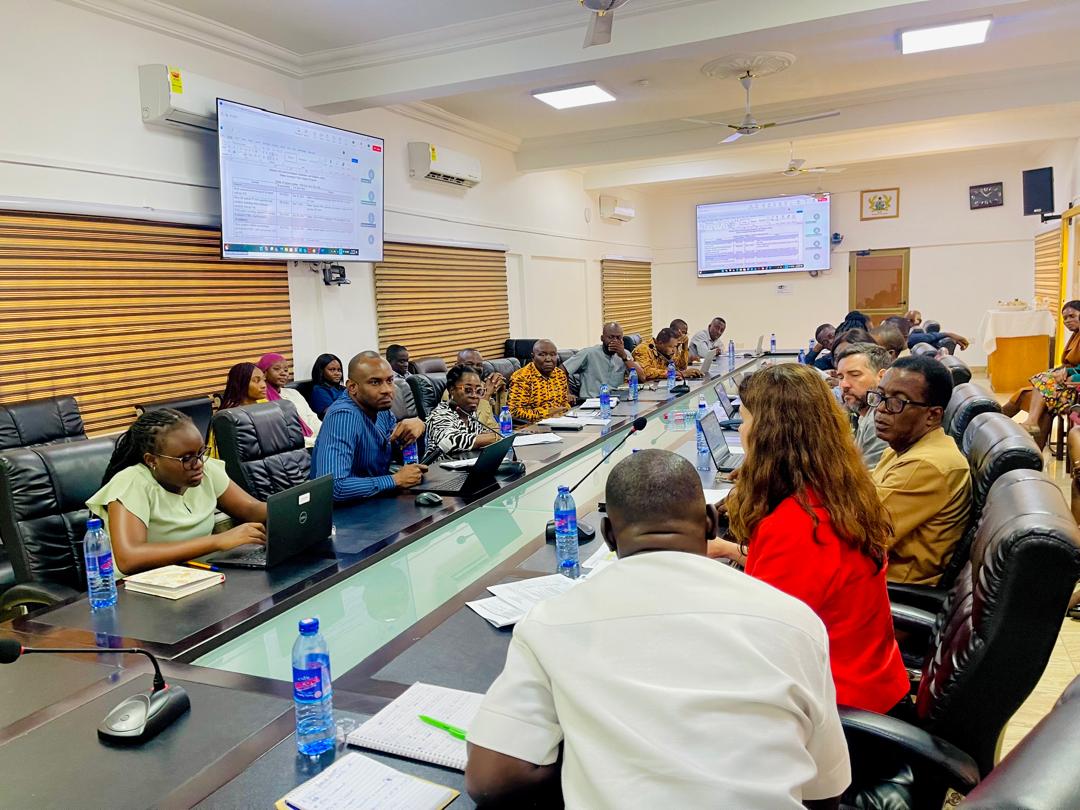The Ministry of Local Government, Chieftaincy and Religious Affairs (MLGCRA) has successfully hosted a high-level debriefing session on the Ghana Secondary Cities Support Programme (GSCSP), following an Implementation Support Mission conducted by the World Bank. The session, held from 14th to 17th April 2025, brought together key stakeholders from government and development institutions to reflect on implementation progress and chart the way forward for inclusive and resilient urban development.
The support mission focused on Regional Coordinating Councils (RCCs) in the Upper West, Savanna, and Bono East regions, and Municipal Assemblies including West Gonja, Techiman, and Nkoranza South. It offered a platform to share insights from the field, assess project performance, and identify strategic adjustments to sustain impact across all project areas.
As part of the mission activities, the delegation paid a courtesy visit to the Ministry of Finance to discuss inter-ministerial coordination, financial alignment, and strategic collaboration. This engagement reaffirmed the commitment of key government agencies to ensuring sound fiscal management and continuity in development delivery.
Field assessments conducted during the mission highlighted the need for strengthened contract supervision, improved adherence to implementation timelines, and enhanced fire safety systems to protect community infrastructure. The Ministry reaffirmed its commitment to addressing these challenges through stronger collaboration with implementing partners, Assemblies, and local stakeholders.
Addressing participants during the wrap-up session, the Minister for Local Government, Chieftaincy and Religious Affairs, Hon. Ahmed Ibrahim, commended the measurable impact of the programme, particularly in transforming infrastructure, improving service delivery, and elevating the overall quality of life for residents in beneficiary cities.
“The Ghana Secondary Cities Support Programme has brought transformative change to participating municipalities. Beneficiaries of the programme are experiencing meaningful improvements and are privileged to be part of this initiative,” he stated.
In view of the programme’s success, Hon. Ahmed Ibrahim revealed that the Ministry has commenced engagements with the World Bank to explore options for additional financing; either to scale up the current programme or to launch a second phase.
“The aim of this next phase,” he noted, “is to broaden the geographical reach and expand the programme’s interventions. We seek to extend the benefits to more secondary cities and fast-track inclusive urban development across the country.”
The debriefing also stressed the importance of improved coordination between procurement and contract management functions. The Ministry is currently undertaking efforts to streamline internal processes, enhance reporting systems, and reinforce communication across implementation teams to ensure the timely and efficient delivery of project milestones.
In line with the programme’s long-term development goals, the Ministry and its partners are placing increasing emphasis on institutional strengthening, capacity building of local governments, and improved service delivery to citizens. This holistic approach is expected to foster greater community ownership, enhance public satisfaction, and drive sustainable local development beyond physical infrastructure.
As the project cycle nears completion, the Ministry is prioritising a well-structured close-out process, which includes finalising contractual obligations, completing monitoring and evaluation activities, and compiling success stories to inform future development planning.
By fostering strategic partnerships, demonstrating results, and maintaining sound project management practices, the MLGCRA reaffirms its unwavering commitment to promoting inclusive, people-centred urban growth. The Ministry looks forward to deepening collaboration with the World Bank and other development partners to drive national progress and build community resilience.
Source: Darling Maame Efua Cann/Sandra Owusu Asamaoah/Stephanie Edem Klutsey
(Public Relations Unit MLGDRD)
